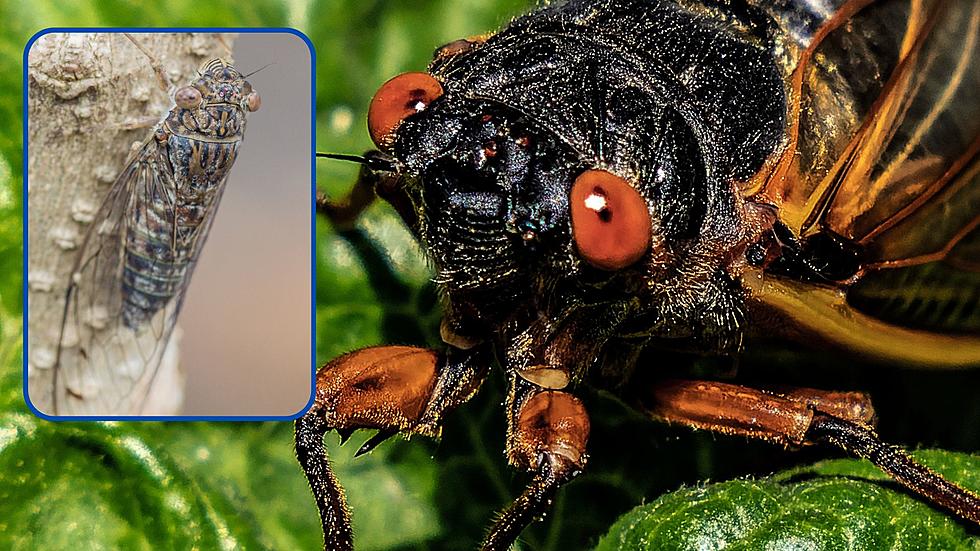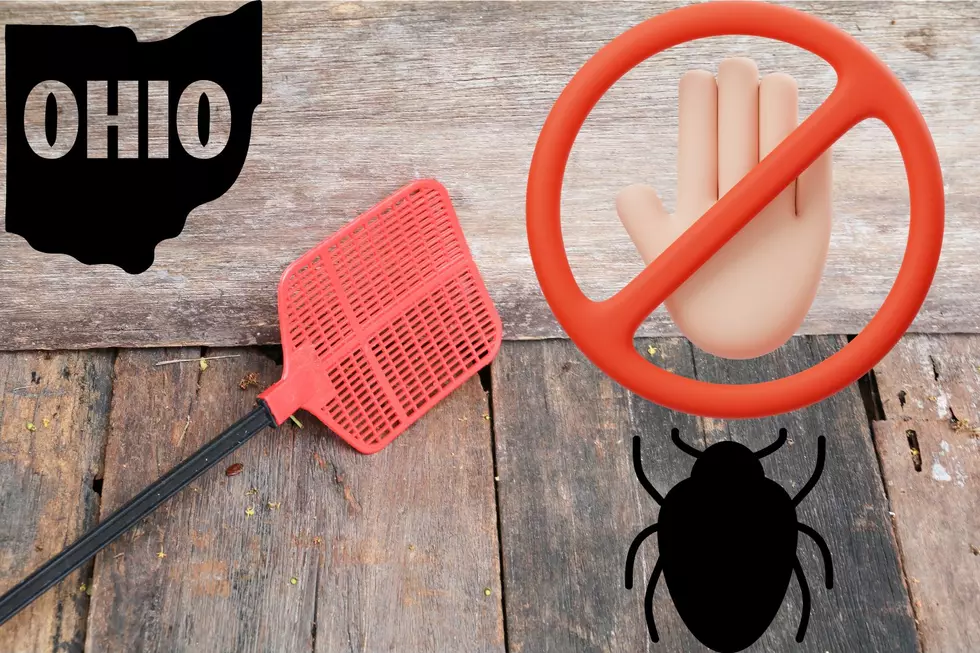
Get Ready Indiana: Two Broods of Cicadas Are Coming in 2024
Late spring, and summer in Indiana can get loud. Not just because it's actually warm outside, and people can go do things, but mostly because mother nature is gettin' it's groove on, and preparing for a new generation to come into this world.
But mostly, it's loud because of the cicadas. And this spring and summer, it's going to be twice as ear-splitting, as two of the biggest broods of cicadas will be waking up.

Entomologists in the U.S. are saying this will be a "spectacular, macabre Mardi Gras" all across Indiana, and the rest of the country. I say it's going to be a deafening roar of screeching.
Periodical cicadas have the longest known insect life cycle. They spend most of their lives underground in an immature nymph form before surfacing from the ground every 13-17 years for a brief adult life.
What is a Brood of cicadas?
Scientists have broken the different generational cycles into "broods" - some of which are 13-year broods, and some are 17-year. For the most part, with all of the different broods (30 of them in total), at least one brood will likely spring from the ground every year. But once in a while, both a 13-year and a 17-year brood will "come alive" at the same time. 2024 will be one of those years.
Brood XIX (The Great Southern Brood) will be the 13-year brood emerging from the ground this year, while Brood XIII (Northern Illinois Brood) will come out at about the same time. This will result in double the amount of adult cicadas awake and singing for approval of a mate this spring and summer.
The last time these two broods came out at the same time was more than 220 years ago, in 1803.
"It's like a graduating class that has a reunion every 17 or 13 years. "We'll probably see billions of cicadas." - Gene Kritsky, professor emeritus of biology at Mount St. Joseph University
The first of the two broods to make themselves known - the Great Southern Brood - will start appearing in late April, and the other - The Northern Illinois Brood - will start poking their heads out in mid-May.
All told, It won't just be Indiana affected by this, but also Illinois, Wisconsin, and the southern part of Michigan.
Thankfully, though, the broods will all die off by the end of June, and their overwhelming song will be replaced by a much quieter annual cicada group, which come out every summer... which are much quieter.
How Loud are cicadas?
Once the ground gets warm enough, cicadas will climb out of the ground, and attach themselves to a tree to shed their skins. Four to five days after that, the male cicadas will start "singing" to attract a mate.
Jonathan Larson, who is an extension entomologist at the University of Kentucky, says these songs can be ear-splitting.
"Their songs can be louder than a jet engine. [They'll] produce this chorus that attracts the females to the trees. Then they'll pair up and have courtship songs."
After mating, the female will lay her eggs in a tree, and then... they die, which Kristsky says is the SECOND worst part of the insects existence.
"Then they smell like a delicate, rotten Limburger cheese."
OH... great. So in addition to the awful sound, we'll have an awful smell.
Can't wait until summer.
Photos of a Cicada Breaking Free from Its Shell
Gallery Credit: Chadwick J Benefield
LOOK: 20 of the biggest insects in the world
Gallery Credit: Andrea Vale
More From WKFR







